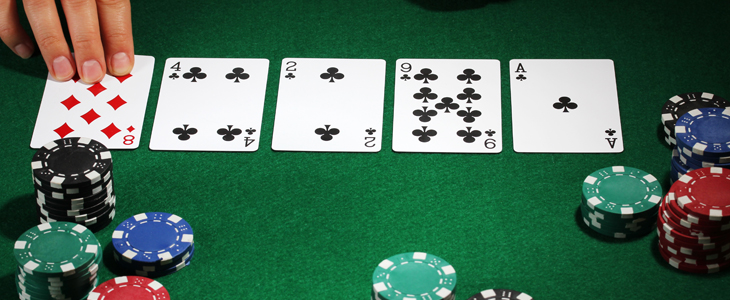Deny it all you like, but every single person who sits down at a poker table likes to believe they’ll make out like a movie star. That everything will be delightfully dramatic, they’ll play like a pro and ultimately make out like a bandit. Unfortunately, this rarely turns out to be the case at all.
Being great at poker – as in really great – can be hugely satisfying. By contrast, if you are fundamentally terrible at poker and cannot get out of amateur hour, the whole thing can be remarkably frustrating. Rather than looking like some kind of movie star, you instead consistently end up looking the fool in front of your friends.
The obvious question therefore being – how can you step out of amateur hour for good?
Well, the short answer is that if you are habitually losing every time you play, you are probably making one or more of a handful of common mistakes. Which for the most part apply just as much to online poker as they do the real thing.
As such, the first thing to do is accept that you are not simply terminally unlucky and nor are you being dealt a bum hand every time. Accept that you are terrible because you are making yourself terrible and you’ll be immediately one step closer to improvement.
After this, it’s a case of taking into account the following bad habits and ensuring that any of them that apply are acknowledged and rectified as quickly as possible:
1 – Ignoring Basic Strategy
First of all, one of the worst things you can do is assume that the only poker strategies that work are those that are spectacularly complicated. While many advanced poker strategies really are bewilderingly complex, there is one basic strategy every amateur should stick with. That being – bet when you have a good hand, fold when you have a bad hand. That really is all there is to it. Of course, you’ll need to make the required adjustments in accordance with the playing styles of whoever you are playing with at the time. Nevertheless, this really is the only poker strategy you need to bother with for the time being.
2 – Too Afraid to Fold


Something else to acknowledge is the fact that folding does not necessarily represent acknowledgement of defeat. In fact, the vast majority of seasoned professionals would tell you that knowing when and how to fold strategically represents one of the most important of all poker playing skills. Instead of playing any hand that has even the most remote chance of winning, it makes far more sense to continue folding until you have a hand that is actually worth playing. This might not be the kind of strategy that generates continuous wins, but will at least stop you from burning through your stack too quickly.
3 – Too Afraid to Raise
One of the very few rules the vast majority of amateurs could do with learning is that of raising if and when you are the first to enter the pot. This is because when the first player to enter the pot chooses to call, all this does is tell everyone else at the table that they do not have a great deal of confidence in their hand. Which in turn represents an indication for their opponents to drive them out of the hand with pure aggression. If your cards are not worth playing, get yourself out without placing a bet. If you intend to play, always raise if you are the first to enter the pot. This demonstrates that you are taking your hands seriously – and so should those around you.
4 – Not Doing Your Homework
From online video tutorials to the biographies of the world’s greatest poker players to televised tournaments and so on, there is really no excuse whatsoever for not doing your homework. The simple fact of the matter is that if you want to train yourself up to a higher standard, you are going to need to put in the necessary research. Practical experience is one thing, but there is a world of information out there that could be making all the difference to your poker capabilities right now. And given the fact that most of it can be accessed 100% free of charge, there really is absolutely no excuse whatsoever for not getting it done.
5 – Too Much Practice with Fake Money
When getting to grips with the basics of poker for the first time, playing online for fake money can be great. However, given the fact that there is absolutely no real money on the line, you cannot expect the same experience as real-money play. The decisions you make, your attitude, bravery and so on are all completely different when playing with real or fake money respectively. Which is precisely why it is common for those who play too much practice poker to develop a fair few bad habits along the way.
6 – Blaming the Poker Sites
It also common for those who are habitually terrible at online poker to start pointing the finger of blame at the poker sites themselves. They assume that there is some level of bias or favouritism going on, which explains why they simply cannot win no matter what they do. In reality, this simply isn’t the case at all. At least, not if you ensure that you only ever use the kinds of online services and poker rooms that are registered, regulated and have an established reputation for their responsible operations.
7 – Insufficient Focus
Last but not least, if you genuinely want to improve your poker skills, you can’t simply expect to play a few hands every couple of weeks and go pro by the end of the year. Unless you are willing to focus sufficient time and attention on the game, you are doomed to remain stuck in amateur hour permanently. So it’s worth asking yourself – exactly how serious are you about stepping things up to a higher level?
You might also find the following articles interesting:
- 7 Must-play Casino Games That Are Taking Over The Industry
- A Few Odd and Amusing Chinese Gambling Superstitions
- Casino Loyalty: Does It Really Pay?














